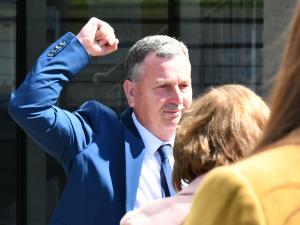
By Q Radio news
The families of those who died in the Ballymurphy massacre say they want an independent investigation into the actions of the security forces at the time their loved ones were killed.
Representatives have told a committee of the Irish parliament that civil proceedings against the British government will continue despite recent inquest findings that described all ten Ballymurphy victims as totally innocent.
Furthermore they say they'll continue to oppose Boris Johnson's proposed amnesty for military veterans of various conflicts including the Troubles.
Here's lawyer Padraig O' O’Muirigh:
The families of those who died in the Ballymurphy massacre say they want an independent investigation into the actions of the security forces at the time their loved ones were killed.https://t.co/A0hU6UedA9
— Q Radio News (@qnewsdesk) May 25, 2021
A very constructive engagement with the @OireachtasNews GFA Committee on the Ballymurphy Inquest. Cross party support in opposition to British Govt proposals for an amnesty for soldiers & an agreement by committee members to visit Ballymurphy in the near future! pic.twitter.com/26b8AYmsOG
— Pádraig Ó Muirigh (@pomuirigh) May 25, 2021
The families have also called on the Irish Government to intervene in any attempt to prevent prosecutions of veterans by the British Government.
Family members said they would take legal action against any plans to block the prosecution of former British soldiers.
Carmel Quinn, whose brother John Laverty was shot dead in the incident in west Belfast, appeared before the Good Friday Agreement Committee in Dublin on Tuesday.
She said Prime Minister Boris Johnson needs to be told “firmly” that there should no amnesty for soldiers who allegedly committed crimes during the Northern Ireland Troubles.
Earlier this month, Mr Johnson issued a formal apology to the families of the Ballymurphy victims, after a coroner found that the 10 people who died in August 1971 were “entirely innocent”.
The Army was found to be responsible for nine of the deaths, which included a mother-of-eight and a Catholic priest.
Fine Gael senator Emer Currie said families should have access to an effective investigation and process of justice for every Troubles-related death.
“I am utterly against any unilateral action that changes the Stormont House Agreement which is a collective framework to deal with legacy,” Ms Currie told the committee.
“If unilateral action is taken what does that mean for obligations under the European Convention on Human Rights (ECHR), which is a key element of the Good Friday Agreement, and what does it mean for international human rights?”
Padraig O Muirigh, solicitor for the Ballymurphy families, said any move to provide amnesty for British soldiers is a breach of the ECHR.
“These families will challenge any such move by the British Government, in the domestic courts or the European courts if they need to,” he added.
Ms Quinn said the inquest process was often distressing for the families.
“It was the attitude of some of the soldiers who were asked about things but said they couldn’t remember. That was right down the line,” she added.
“There are other families who haven’t had any kind of recognition, their loved ones were murdered one day and then nothing happened.
“The Stormont House Agreement is there, the mechanisms are there, but people can’t move on and they are stuck in the past because there has never been any accountability for what happened.
“There was a letter sent to Irish Government from people from all walks who lost someone in the conflict but that still needs some kind of accountability.
“That needs to be addressed. The Stormont House Agreement needs to be implemented and the Prime Minister needs to be told firmly there is no amnesty on the table for soldiers.”
John Teggart, whose father Danny was shot by a soldier in August 1971, said that if a proper investigation had been carried out at the time of the deaths, it would have saved other lives.
He added: “If the courts were more sympathetic to the families without taking the word of the Army at the time, if things were done differently in the courts and they were held accountable, things would have been different.
“We corrected history and vindicated their good names. We hope the same help and resources and the same laws were available to others.”
Mr Teggart, who was 11 when his father was killed, described the years after his death, saying: “It was very hard. I grew up really angry about what happened.
“I would have herd my mummy crying at night-time. My family was split up to try and help in some way. We were sharing the pain and that continued through life.”
Ms Quinn, who was eight when her brother was killed, said: “There was nightly raids at our homes because that is what the Army did. They targeted the homes of the people that were murdered, they targeted them to try and keep us quiet and demonise us.
“It was another way to try and keep the families down.
“My mother was never the same again after that. It has had a lasting impact on my life.
“I am very conscious of where my children are, who are adults now, and I am very alert and anxious. The rest of my siblings were never the same again and never lived the lives they should have lived.
“I get sometimes very angry because not only did they murder my brother, they destroyed an entire family. I watched my mummy slowly die in front of me and my dad died of a broken heart.
“Our loved ones were innocent but we need prosecutions and investigations. We will never move on.
“I can’t accept what happened to my brother.”
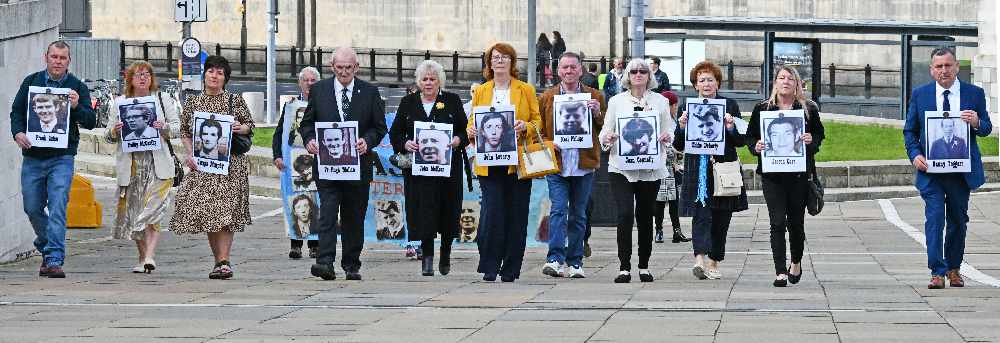
(Relatives of those killed in the Ballymurphy massacre)


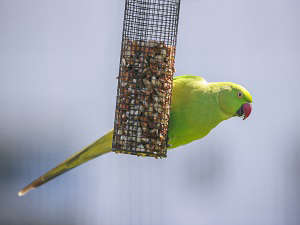 Guidance sought over future of colourful parakeets in Belfast park
Guidance sought over future of colourful parakeets in Belfast park
 Woman released after questioning over pipe bombs in Co Down
Woman released after questioning over pipe bombs in Co Down
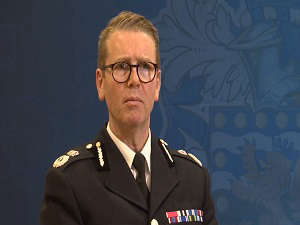 Suspended chief constable will not be prosecuted over alleged sexual offences
Suspended chief constable will not be prosecuted over alleged sexual offences
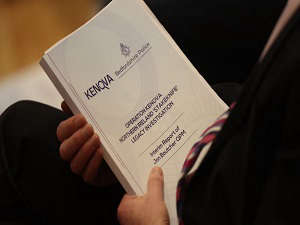 MI5 files not deliberately withheld from Stakeknife probe, review concludes
MI5 files not deliberately withheld from Stakeknife probe, review concludes
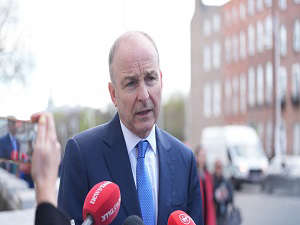 Taoiseach urges gardai and others to testify at Omagh bomb inquiry if asked
Taoiseach urges gardai and others to testify at Omagh bomb inquiry if asked